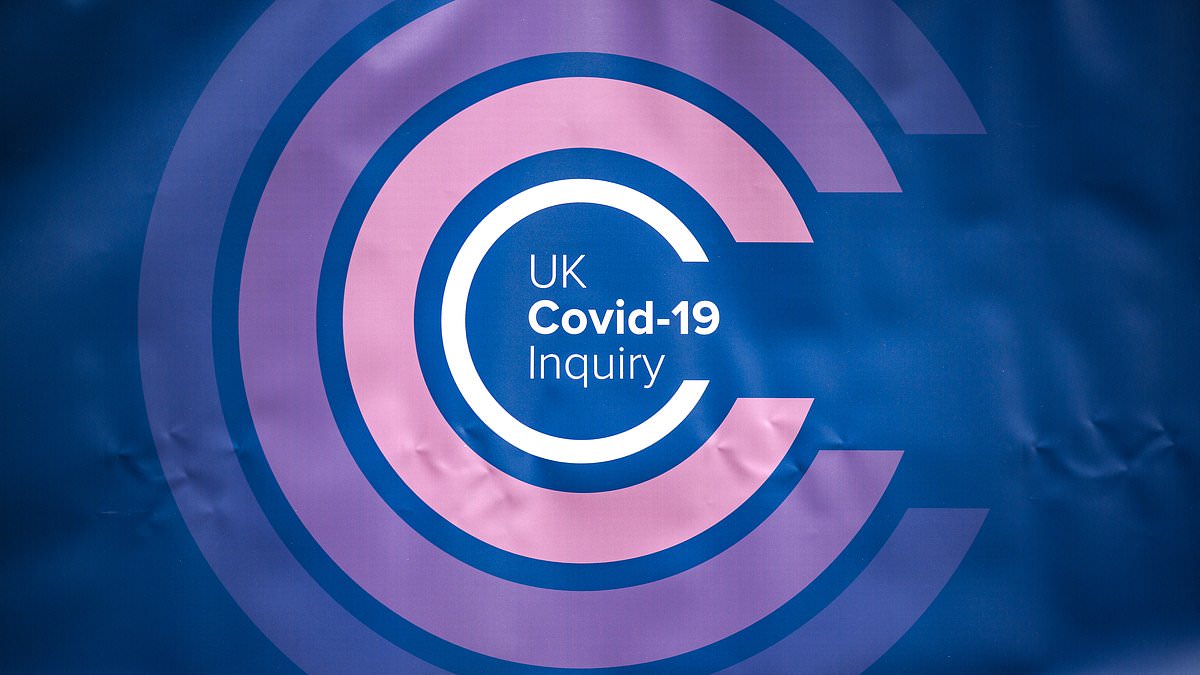Copyright dailymail

The Covid Inquiry has become the most expensive in British legal history - costing more than £192 million in three years. Financial reports published on Monday showed an astonishing £110.8 million has been spent on lawyers and 26.3 million on 'operational' costs - including the inquiry's central London headquarters, IT systems and stationery. Inquiry chairman Baroness Heather Hallett has been paid £794,000 and received £41,000 in expenses since the pandemic investigation began in June 2022. A further £717,000 of taxpayers' money has been spent on travel, food and drink for inquiry staff. It means the probe has overtaken the 12-year Bloody Sunday Inquiry, which cost £191.2 million, to become the most expensive ever undertaken. The daily cost is averaging £160,000 - which dwarfs the day rate of the sprawling eight-year Child Sexual Abuse probe, which cost £70,484 each day. Reform leader Nigel Farage branded the cost 'outrageous', and said it demonstrates why public inquiries should not be allowed to 'drag on month after month, year after year'. 'There will be no conclusion for years,' he said. 'It should be wound up quickly and conclusively.' Speaking at a press conference, he warned that the grooming gangs inquiry must not be allowed to fall into the same trap, and continue 'for such a long time that it reports nothing before the next General Election'. 'The Covid inquiry...goes on month after month, year after year, and which has just gone through £192 million in costs, making it even more expensive than the never-ending Bloody Sunday inquiry,' he said. Former Tory leader Sir Iain Duncan Smith said: 'We should shut this thing down right now. 'In Sweden it cost a fraction of this cost and they got on with their lives. I warned at the time it was set up that if you let them loose, they will never stop, it will be a machine for spending money. 'They have been dealing with tittle-tattle. Everybody has lawyers being paid for by the state. It's a complete jamboree and we should get someone sensible to cut through all the nonsense.' Professor Karol Sikora, a former WHO director and critic of pandemic lockdowns, said the inquiry was 'just highly paid lawyers scoring points'. 'It has no scientific credibility,' he said. 'We needed a proper public health investigation. The past can guide us for any future pandemic but this inquiry is a catastrophic waste of everybody's time.' The first public hearings of the Covid Inquiry took place in June 2023 and the last ones will finish in mid-2026. The inquiry has been divided into 10 separate investigations or 'modules', meaning some witnesses - including former health secretary Matt Hancock - have been called multiple times to give evidence on similar subjects. In its scathing first report in July, the inquiry called for 'radical reform' to safeguard against future pandemics. The government's 'damaging absence of focus' was blamed for the medical and economic turmoil caused by the virus. Last year, the Taxpayers' Alliance warned that the inquiry's costs were 'spiralling out of control'. Chief executive John O'Connell said: 'As the inquiry drags on, it's clear that the expenses are only climbing, with no signs of fiscal restraint in sight.' A spokesman for the Covid Inquiry has previously defended its cost, saying it is 'unlike any previous public inquiry'. 'It has a very broad scope because it is investigating multiple aspects of a pandemic that affected everyone in society,' the spokesman said. 'The Inquiry Chair, Baroness Hallett, has set out the substantial task faced by the Inquiry to consider and report on the preparations and the response to the pandemic in England, Scotland, Wales and Northern Ireland. 'She made clear that to do this properly will take time and have a significant cost. 'The Inquiry continues to be thoroughly transparent, publishing financial reports on a quarterly basis for anyone to see.



